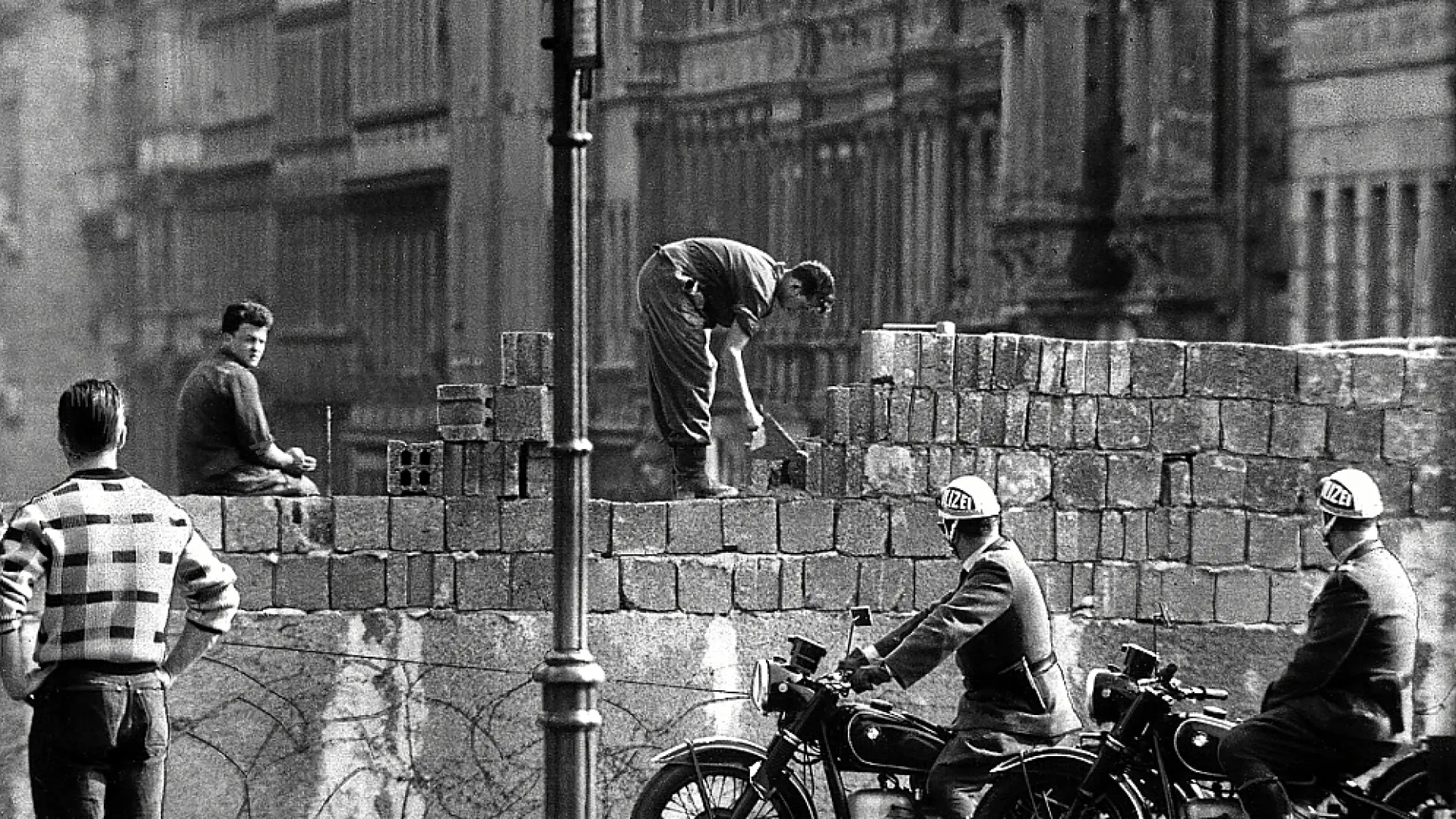
Los 35 años de la caida del Berlin Wall are the most vulnerable points in the east and east of Germany. This was reflected in the electoral successes of the far-right Alternative for Germany (AfD) and the left-wing populist Alianza Sarah Wagenknek (BSW). country.
The two parties are questioning part of the consensus that has governed German politics for decades. In accordance with the applicable policy, the brand's margen de las diferencias, hay algo que los aproxima: el chazo al envío de armas a Ukraina or las ciones contra rusia, y su capacidad de aprovecharse del popular discontente en el este.
Y el 35 aniversario llega con el adiñad de la incertidumbre politica que genera la ruptura – yesterday miércoles – de A government coalition formed by social democrats, greens and liberals.
The defeat of the civil movement
The fall of the Wall in 1989 was the greatest triumph of the civil movement in the GDR, and also the moment when it began to lose its importance. That the West German government led by Chancellor Helmut Kohl took over the process that would lead to unification.
Historian Arne Bauerkämper, professor emeritus of the Free University of Berlin, told EFE: “The two events had different actors. The fall of the wall was caused by the civil movement in the GDR from the summer and autumn of 1989.”
Although the wall fell clave en el proceso que que la reunificación los actors que habian impulsado perdieron posteriore fuerza.
The main moment was the elections held on March 18, 1990las únicas libres en la historia de la RDA, en la que la que la coalition que que que movimiento ciudadano alcanzó barely el 3%.
“A lot of them got a lot of results in 1989,” Bauerkämper said.
Los comics were marked with a key question era cómo debá ser el camino hacia la reunificación.
Some – such as representatives of the civic movement – were supporters of the RDA, which later introduced a series of reforms to begin negotiations for a reunification of relative equality with the Federal Republic of Germany. Germany.
Del otro lado estaban los partisans de una reunificación rapida que termanaron nando laseciones With the Alianza para Alemana al frente de la cual estaba la Cristianodemócrata (CDU), chaired by Lothar De Maiziere, who would become the last prime minister of the RDA.
Enter this app, meet east in west instantly.
Historian Sascha-Ilko Kowalczuk recalls in his recently published article “From Revolution to Reunification of the Fall of the Wall” that l.Margaret Thatcher, then Prime Minister of Great Britain, congratulated Kohl por la victoria de Meiziére, “daba en el clavo”.
A partir del del triunfo de Maiziére el camino hacia la reunificación fue vertiginoso, pero el processo, que entre Mayo a November 1989 on the Había dato en la Street, Había passado a los despachos.
The end result was the repeal of the RDA. cuyos territorios terminaron por assumar el orden jurídico y el system económico de occidentecasi sin margen de negotiations are possible.
“El price de no haber intentado entonces algo comun y en igualdad de conditions, es decir, una verdadera reunificación, se está pagando ahora y con riesgo para la democracy“, says the essayist Dirk Oschmann in his book “El este: una invención del oeste alemán”.
An applied sense of reunification
The euphoria of the fall of the Wall on November 9, 1989 was followed a few months later by the first disappointments that companies in eastern Germany lost their competitiveness after the introduction of the Western Market in June 1990, leading to an increase in del paro. .
Despite the continuous improvement of the material situation since 1990, the differences between the two parts of Germany, y. The fact that Germans from this region are less responsible has led to a kind of protest culture.
At some AfD demonstrations, the slogan “Wir sind das Volk” (We are the people), the slogan of the peaceful revolution in the GDR, can even be heard.
“In September 2022, it became known that trust in democracy in eastern Germany fell to 39%. In the west it is 59%, a monstrous gap of 20 percentage points equals a monstrous wage gap of almost 22.5%,” Oschmann writes.
This is the kind of discontent that Germany's AfD and BSW are using to attract votes with right-wing and left-wing populist messages. que les hacen ganar ya ecciones regionales en el primer caso ya dempesona un papel clave en la formationa de gobiernos In second place in federal states such as Thuringia and Brandenburg.
You may also like
-
Hugh Grant Admits Motos Mistake: 'Romantic Comedy Happened'
-
El jurado declared guilty al accusedo del crime de Velle (Ourense): “Sabia lo que hacía”
-
Broncano accused 'El Hormiguero' of Motos y acusa at the invitation of 'La Revuelta': “We did not apply to the program”
-
Quevedo presents his highly anticipated second disco: 'Buenas noches'
-
Real Madrid regained their Europa League smile and edged closer to the play-offs after impressing Alba Berlin
